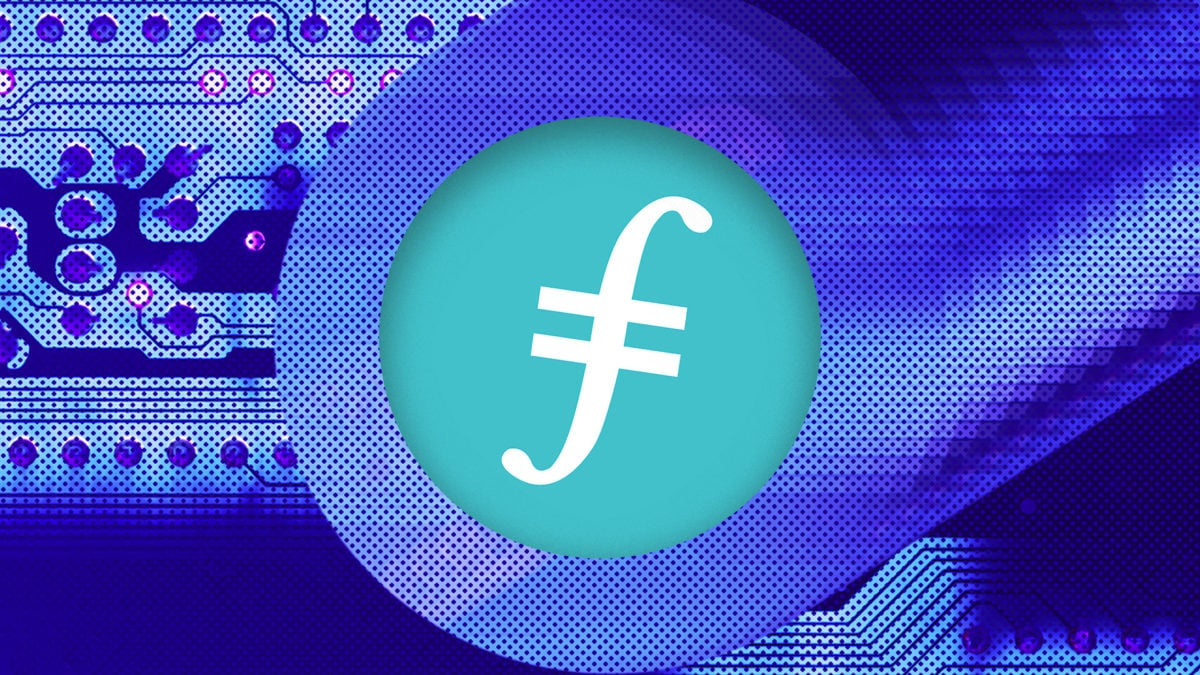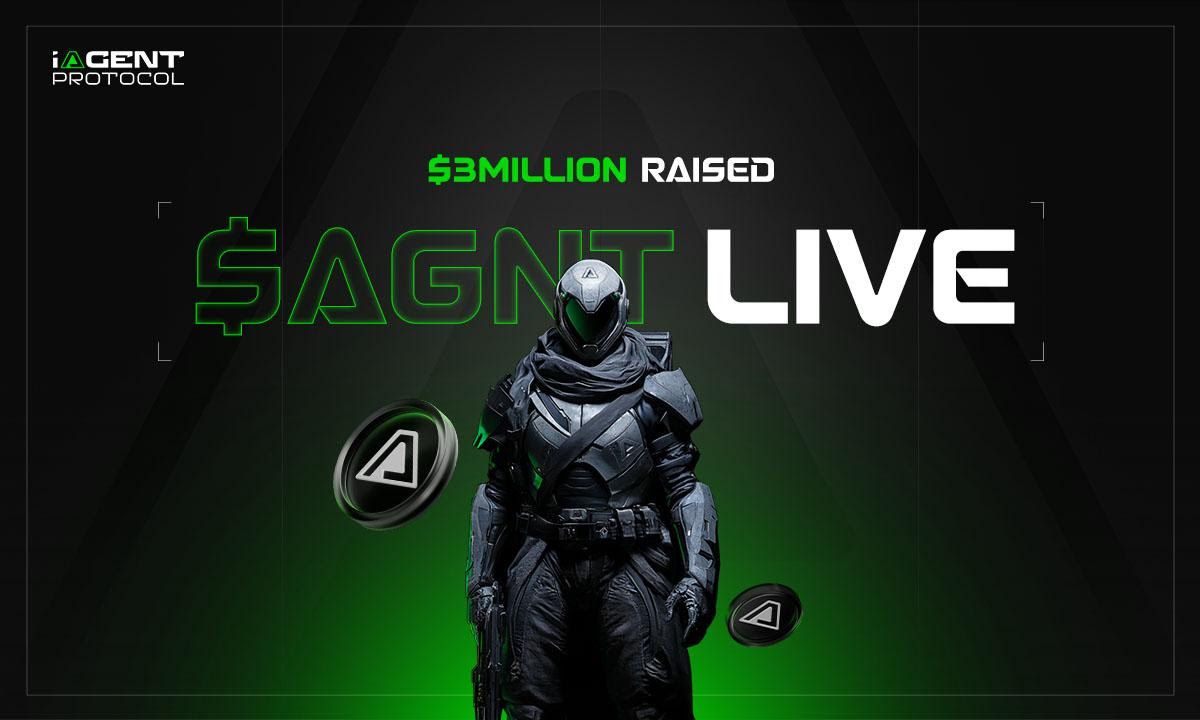Latest DePIN Funding News

2 months ago
GLIF Launches Governance Token GLF with Airdrop and Plans for Expansion
GLIF, the largest DeFi protocol on Filecoin, has officially launched its governance token, GLF, and is distributing 94 million tokens through an airdrop. This distribution represents 9.4% of the total GLF supply, rewarding users who have engaged with the protocol by accumulating GLIF points. Initially, GLIF had planned to allocate 100 million tokens for the airdrop, but adjusted the number based on user participation. The remaining tokens will be returned to the community rewards pool for future distribution. GLF is currently focused on governance, but the team is developing a loyalty program inspired by airline miles, which will eventually offer additional benefits to token holders.
As GLIF expands beyond Filecoin, it aims to support additional decentralized physical infrastructure networks (DePINs). The protocol allows FIL holders to earn rewards through liquid leasing, enabling them to lend tokens to Filecoin storage providers. These providers use FIL as collateral to offer storage services, and lenders receive rewards in return. Depositors in GLIF receive iFIL, a liquid leasing token that can be traded or utilized in other DeFi protocols while still generating yield. With over $102 million total value locked, GLIF has established itself as a dominant player in Filecoin's DeFi space and is now exploring similar systems for other DePINs.
GLIF's expansion strategy involves discussions with various protocol foundations, focusing on user demand, technical feasibility, and economic risks. Many of Filecoin's storage providers are also significant miners across DePIN networks, leading to a trend of optimizing hardware for multi-chain contributions. By integrating with networks already supported by these miners, GLIF anticipates rapid scaling. Additionally, the team is exploring DePIN networks outside of storage, including those in the energy sector, and is open to adjusting their model or introducing new protocols to accommodate these networks. This strategic expansion reflects GLIF's commitment to innovation and adaptability in the evolving DeFi landscape.

2 months ago
iAgent Raises $3 Million and Launches $AGNT Token to Revolutionize AI in Gaming
Decentralized AI network iAgent has successfully raised $3 million in funding and launched its native token, $AGNT. The project aims to create a new ERC standard and has formed strategic partnerships with notable projects such as Base, LayerZero, Avalanche, Aethir, Arbitrum, and XAI Games. With the Token Generation Event (TGE) now live, iAgent is establishing a foundation for AI Agents to become verifiable digital assets that can be trained, validated, and exchanged transparently. The initiative focuses on enhancing the scalability and accessibility of AI models across various ecosystems, with products like the Visual Learning Model (VLM) designed to learn from real-world gameplay rather than traditional text-based methods.
The VLM-powered AI is currently operational in games like Counter Strike 2, Off the Grid, and Citizen Conflict, where players have contributed over 25 TB of gameplay data. iAgent is also developing a new ERC asset standard to bring AI Agents on-chain, ensuring secure and interoperable digital assets that facilitate true ownership and trading. The AI Agent Marketplace is central to the iAgent ecosystem, allowing developers to list AI models for rental or sale, while businesses can purchase or integrate tailored AI solutions. Additionally, the iAgent DEV Hub provides developers with essential tools and a trustless AI validation framework to optimize AI models.
As gaming serves as a primary use case for training VLM-based models, iAgent is introducing adaptive AI agents to enhance gaming experiences through AI-powered assistants, Smart NPCs, and predictive AI for in-game economies. The roadmap for iAgent includes the launch of the AI Agent Marketplace in April 2025, followed by the introduction of the ERC standard proposal and the AGNT-Hub. By Q4 2025, the protocol Testnet and main net will be launched, establishing a fully operational iAgent Protocol. The AGNT token will play a crucial role in powering AI training, trading, and governance participation, positioning iAgent at the forefront of the rapidly growing AI, gaming, and DePIN industries.

2 months ago
Bitcoin Price Faces Pressure Ahead of FOMC Meeting
At the beginning of the week, Bitcoin (BTC) faced significant selling pressure, dropping from $84,500 on March 17 to $81,300 at the time of writing. This decline is likely linked to the upcoming Federal Open Market Committee (FOMC) meeting scheduled for March 18-19. Historically, FOMC meetings act as market resets, prompting traders to de-risk and reduce leverage ahead of the announcements. The outcome of the FOMC meeting, particularly the press conference by Federal Reserve Chair Jerome Powell, often leads to sharp reactions in the crypto markets, making it crucial for traders to analyze market behavior leading up to the event.
Traders are particularly focused on the FOMC minutes for any indications regarding shifts in the Fed's stance on inflation and interest rates. Bitcoin's price has shown a tendency to react sharply following FOMC announcements, with notable declines observed after the Fed maintained rates in early 2024. Interestingly, a pattern has emerged this month where Bitcoin's open interest has not decreased significantly before the FOMC meeting, despite a previous shakeout of $12 billion. This could suggest that traders are feeling less anxious about the Fed's decision, with a 99% probability indicated by CME Group's FedWatch tool that rates will remain unchanged.
In contrast to Bitcoin whales, investors in spot Bitcoin ETFs have historically reduced their BTC holdings before FOMC meetings. However, on March 17, spot Bitcoin ETFs experienced $275 million in net inflows, signaling a potential shift in investor sentiment. This increase in inflows may indicate that investors are anticipating a more dovish stance from the Fed or are using Bitcoin as a hedge against uncertainty. The upcoming FOMC announcement is expected to result in significant price movements for BTC, with traders anticipating that the Fed's statements could either lift the markets or drive prices lower, emphasizing the need for careful observation of post-FOMC price action and on-chain data.

2 months ago
AI Cryptocurrencies Bittensor and IntelMarkets Show Promising Growth Potential
AI-driven cryptocurrencies like Bittensor and IntelMarkets are experiencing a significant surge, with last month's impressive 40% increase drawing attention from analysts. The growing adoption of artificial intelligence and decentralized intelligence has positioned both TAO and INTL tokens for potential substantial growth. Investors are left to ponder whether this is merely the onset of a larger movement in the crypto space, particularly as Bittensor's recent developments suggest a promising future.
Bittensor's TAO token has recently gained traction in the DeFi AI sector, although it remains within a descending price channel. A minor bullish engulfing pattern has emerged, hinting at a possible breakout. Factors contributing to this optimism include President Trump's substantial investment plan for AI, which, despite focusing on centralized solutions, may elevate discussions around decentralized AI, where Bittensor is making strides. Additionally, a partnership between Zuvu AI and Vana aims to enhance decentralized AI within Bittensor, potentially paving the way for TAO to reach the ambitious $1,000 mark under favorable market conditions.
On the other hand, IntelMarkets is democratizing access to AI tools for everyday traders, previously available only to hedge funds. By providing advanced trading bots and real-time alerts, IntelMarkets empowers small traders to make informed decisions. The platform also emphasizes education, offering resources to simplify complex investment strategies. With its robust security system, Codeum, IntelMarkets ensures user assets remain protected. Currently in Stage 10 of its presale, the INTL token is priced attractively at $0.092, with predictions suggesting it could rival Bittensor's market cap, offering early investors a potential 20,000% return on investment.

2 months ago
iExec's Decentralized Confidential Computing: A Solution for Web3 Privacy Challenges
The Web3 revolution has brought forth promises of enhanced ownership, transparency, and security for users. However, a significant challenge remains: the issue of data privacy and security. Blockchain technology, while offering pseudonymity, records every transaction on a public ledger, which means that true privacy is elusive. Through extensive on-chain analysis, individuals can be traced, exposing them to potential tracking and security threats. To genuinely realize the vision of Web3, developers must prioritize the integration of privacy-centric solutions that safeguard user data while upholding transparency and security.
One of the critical vulnerabilities in Web3 is the handling of data in use. Traditional security measures often focus on data at rest or in transit, neglecting the sensitive data actively processed by applications. Without proper protection, this data remains unencrypted in memory, making it susceptible to breaches and unauthorized access. iExec is addressing this issue with its innovative Decentralized Confidential Computing (DeCC) approach, which combines the decentralization of blockchain with hardware-based security to protect data in use, thus enabling users to maintain ownership and monetize their information securely.
iExec's protocol integrates off-chain confidential computing with on-chain blockchain security through its Proof of Contribution (POCO) smart contracts. This synergy allows developers to create trust-driven decentralized applications (dApps) that manage sensitive data without exposing it to third parties. Tools such as DataProtector and Web3Mail empower developers to encrypt data, manage access dynamically, and monetize digital assets while ensuring privacy. As AI development continues to face challenges regarding data privacy and fair compensation for contributors, iExec's Confidential AI solutions promise secure and scalable workflows, ensuring that data contributors retain control and value in the evolving landscape of Web3.

2 months ago
Helium Network Shows Remarkable Growth in Q4 2024
Messari, a prominent crypto research firm, has released its latest report titled "State of Helium Q4 2024," which provides an in-depth analysis of the Helium Network's growth, adoption, and operational advancements during the last quarter of 2024. The report highlights significant metrics, including a staggering 555% increase in offloaded data, totaling over 576 TB. This growth is attributed to the expansion of the DePIN (Decentralized Physical Infrastructure Networks) project, particularly in mobile and IoT network capabilities, showcasing Helium's robust performance in a competitive landscape.
In Q4 2024, Helium Mobile experienced a 7% growth in subscribers, reaching over 124,000 users for its unlimited talk and text messaging service, with recent updates indicating this number has surpassed 150,000. The network also saw a 14% increase in mobile hotspots, totaling 24,800, while IoT hotspots grew by 20% to 32,900 following its migration to the Solana blockchain. Notably, partnerships with major telecom companies, such as Telefonica in Mexico, and the integration of Ameriband’s 100,000+ Data-Only Hotspots, have significantly enhanced Helium's coverage and operational capabilities across the U.S.
The report also discusses Helium's strategic implementation of HIP 138, which aims to simplify its token structure by unifying under HNT. This change is designed to lower barriers for new participants by redistributing HNT emissions, with 70% directed to the MOBILE subnetwork and 30% to the IOT subnetwork. Furthermore, Helium's inclusion in Coinbase’s COIN50 index and a case study at Harvard Business School underscore its growing relevance in the DePIN sector. As Helium continues to innovate and collaborate, its role as a leader in facilitating global connectivity and supporting other DePIN projects solidifies its position in the blockchain ecosystem.

2 months ago
Liquid Mercury Partners with dVIN to Tokenize Wine Investments
On March 17, 2025, Liquid Mercury announced a strategic partnership with dVIN Labs to create a global order book for trading tokenized wine on the dVIN Protocol. This collaboration aims to revolutionize the wine industry by leveraging blockchain technology to enhance transparency and liquidity in wine investments. By utilizing decentralized physical infrastructure networks (DePIN) and real-world asset (RWA) tokenization, dVIN addresses challenges related to authenticity and provenance, which have historically limited wine investment to a select group of affluent individuals. The new platform is set to democratize access to investment-grade wine, transforming it into a scalable asset class for both retail investors and institutions.
Liquid Mercury will provide white-labeled platforms for dVIN's channel partners, enabling individual investors to easily access wines from various winemakers and exclusive selections stored in bonded warehouses worldwide. The partnership aims to aggregate regional marketplaces into a cohesive global order book, utilizing advanced trading technology to ensure optimal pricing for buyers and sellers. David Garrett, co-founder and co-CEO of dVIN, emphasized the potential of the $300 billion investment-grade wine market, stating that their goal is to make wine investment as straightforward as investing in stocks or cryptocurrencies.
Tony Saliba, CEO of Liquid Mercury, expressed excitement about the partnership, highlighting the company's commitment to unlocking wine as an investment asset for a broader audience. He noted that their technology is well-suited for creating new digital marketplaces, tapping into the growing trend of investing in cultural assets. With the dVIN Protocol, which combines data, DeFi, and tokenization, the partnership is poised to bring the wine market on-chain, addressing issues of authenticity, price transparency, and supply chain efficiency, ultimately paving the way for a more inclusive investment landscape in the wine sector.

2 months ago
Altcoins Surge Amidst Bitcoin's Decline
Bitcoin's recent decline below $83,000 has marked a continued downturn in the cryptocurrency market, yet some altcoins are defying the trend with impressive gains. Notably, Ancient8 (A8) has experienced a remarkable surge of 160% in just 24 hours, climbing from a low of $0.09628 to $0.259. This significant price movement can be attributed to Bithumb's earlier listing of A8, a major South Korean exchange, which seems to have created a delayed positive effect as investor interest in the token grows.
Market analysts have identified three primary factors contributing to A8's rise: increasing global attention, higher adoption rates, and a mix of strong holders alongside new market entrants. Interestingly, there have been no substantial project developments that could clarify the sudden price increase, indicating that market sentiment is playing a crucial role in this altcoin's performance.
In addition to A8, Apu Apustaja (APU) has also made headlines by climbing 85% over the past day, reaching $0.0002479 from $0.0001325. This meme coin has gained traction on social media platforms, although, like many of its counterparts, it lacks fundamental updates to justify its price surge. Meanwhile, ROAM Token has seen a 41% increase, moving from $0.136 to $0.1917, bolstered by its recent milestone of 2 million global nodes. Despite these bright spots, the broader crypto market remains under pressure, with Bitcoin and Ethereum both experiencing declines, reflecting ongoing selling pressure across major cryptocurrencies.

2 months ago
StrikeBit Partners with Aethir to Enhance AI Development
StrikeBit has recently announced a strategic partnership with Aethir, aimed at providing AI developers with the necessary computing resources to develop and scale AI agents efficiently. This collaboration integrates StrikeBit's advanced technology with Aethir's decentralized GPU computing infrastructure, ensuring secure and effective AI development and deployment. StrikeBit, a cryptocurrency trading platform, utilizes AI agents to analyze market trends and implement strategies, thus creating new investment opportunities for crypto users.
Aethir stands out as a decentralized GPU computing platform that offers high-performance cloud infrastructure, enabling businesses to access powerful GPUs for various applications, including AI models and gaming. The partnership is particularly significant as it allows StrikeBit's AI developers to leverage Aethir's efficient GPU technology, which is crucial for processing vast amounts of data and refining AI products. This integration not only enhances the capabilities of StrikeBit's AI agents but also ensures that the development process remains cost-effective and accessible for smaller teams.
The implications of this partnership are profound. By utilizing Aethir's decentralized computing power, StrikeBit is fostering an ecosystem that prioritizes privacy, accessibility, and ownership while delivering high-performing computing resources. This collaboration eliminates the reliance on traditional centralized cloud services, which can be prohibitively expensive. As a result, StrikeBit's AI developers can expedite their workflows, expand their operations, and explore new opportunities without the usual constraints, ultimately transforming the landscape of AI development in the cryptocurrency space.

2 months ago
Filecoin's Strategic Shift Drives $99M Inflows and Client Growth
In the fourth quarter of 2024, Filecoin made a significant shift in its storage model, focusing on enterprise adoption rather than merely increasing raw storage capacity. This strategic pivot led to a decrease in total storage capacity from 4.8 EiB to 4.2 EiB, highlighting a reduction in incentives for adding more storage. However, the network's storage efficiency improved, with utilization rising to 32%, up from 31% in the previous quarter. This transition is particularly beneficial for long-term data storage, AI workloads, and compliance requirements, marking a clear move towards high-value storage services.
Filecoin's enterprise-focused strategy has resulted in a notable 10% quarter-over-quarter increase in clients, bringing the total to 2,263 in Q4 2024. Among these clients, 751 are managing large datasets exceeding 1,000 TiB, indicating a growing demand from enterprises for secure and cost-effective decentralized storage solutions. The collaboration with Qamcom DDS to enhance storage security and capacity through DeStor has further solidified Filecoin's position in the market, attracting customers like YayPal and Fieldstream who require robust infrastructure for massive data storage.
Financially, Filecoin experienced substantial inflows, with deposits reaching $99 million in Q4, a 21% increase from $82 million in Q3. Despite a 50% rise in outflows to $75 million, the overall demand for liquidity reflects a thriving lending market. Additionally, the price of FIL surged by 30% to $4.9, with the circulating market cap increasing by 36% to $3.0 billion. With major upgrades to its decentralized physical infrastructure network (DePIN), including the launch of the "Tuk Tuk" upgrade and advancements in the Filecoin Fast Finality mechanism, Filecoin is well-positioned for continued growth in 2025 as a leader in enterprise-centric decentralized storage solutions.
Signup for latest DePIN news and updates